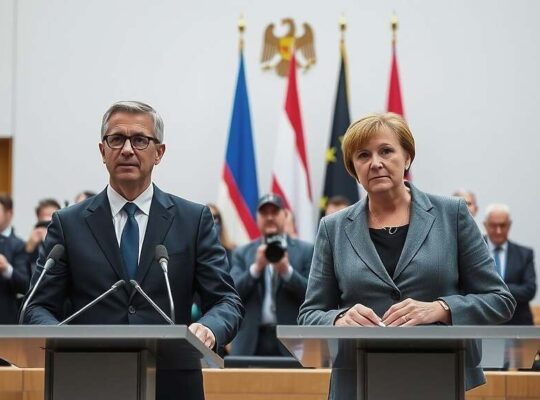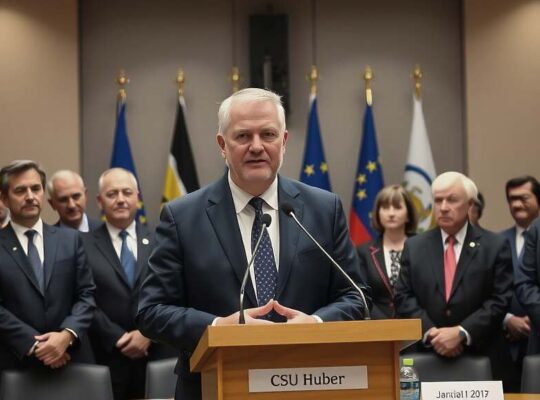The Alternative for Germany (AfD) party has announced a record membership surge, reaching 70,000 members, marking the most significant growth in its history. The announcement, released Friday, underscores a concerning trend in the German political landscape and raises questions about the nation’s shifting allegiances.
AfD co-leader Tino Chrupalla hailed the membership rise as “a tremendous vote of confidence from citizens” and a “motivation to resolutely continue our political path”. He asserted that this bolstered support would soon translate into parliamentary majorities, enabling the party to enact policies purportedly serving “the interests of our country”. This statement, while celebratory for the AfD, glosses over the increasingly polarizing nature of its platform and the anxieties surrounding its policy proposals, particularly concerning immigration and national identity.
However, the jubilant tone was coupled with a pointed critique from co-leader Alice Weidel, who accused the media of “hate campaigns” condemned “undemocratic exclusion” and criticized what she described as “state-subsidized opposition”. This rhetoric aims to deflect scrutiny of the party’s ideology and portray it as a victim of political persecution, a common tactic employed to solidify support among its base and appeal to sentiments of resentment.
The financial stability of the party, according to Bundesschatzmeister (Treasurer) Carsten Hütter, is also experiencing robust growth with “dynamically expanding structures” and a “better-than-ever financial basis”. This indicates a capacity for increased political maneuvering and influence, raising concerns about the party’s ability to amplify its message and potentially destabilize established political norms.
The unprecedented membership growth occurs amidst a period of rising political and social tensions in Germany and warrants careful observation. Whether this surge signifies a genuine realignment of German political sentiment or a symptom of broader societal dissatisfaction remains to be seen, but demands rigorous examination of the factors driving this concerning development and its potential implications for the nation’s democratic institutions.












